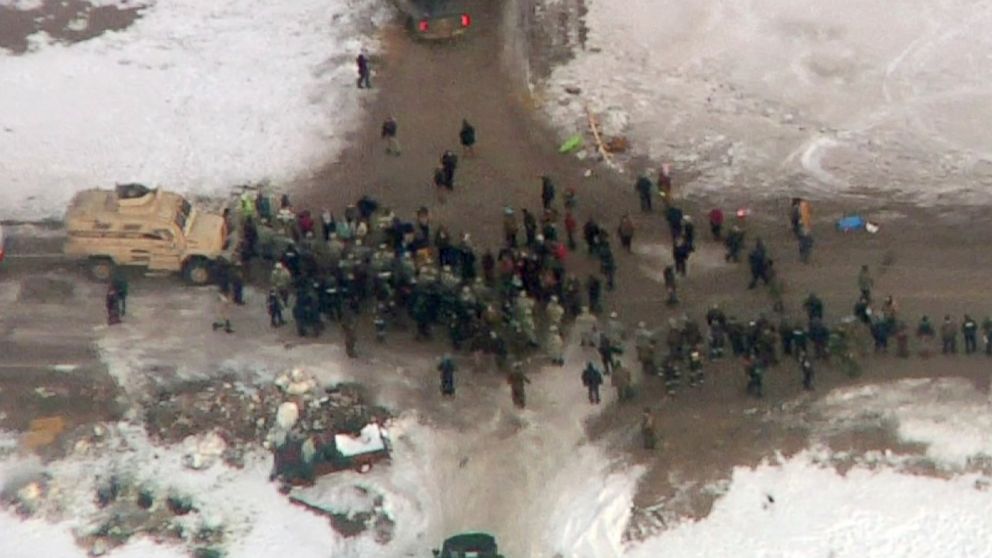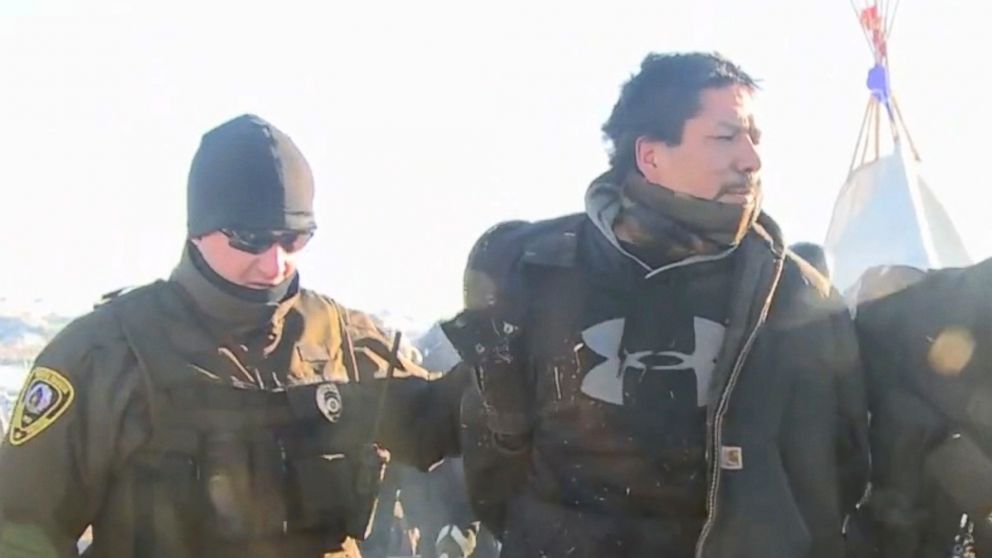Army Corps of Engineers Closing Dakota Pipeline Protest Camp
Record levels of snow are expected in the area, which could compromise safety.
— -- The U.S. Army Corps of Engineers is preparing to close the federal property where demonstrators have been protesting against the Dakota Access Pipeline for safety reasons, it announced today.
Record snowfall is expected in North Dakota, which could lead to record flooding in the area, according to an Army press release. There is also concern that the protester camp is leaving refuse, debris and untreated waste, which could lead to environmental issues at the Cannonball River and Lake Oahe if there is major flooding.
"Much of the land where the protest camps are currently located is directly in an area prone to flooding in years with heavy plains snow pack," the Army said. "While the U.S. Army Corps of Engineers routinely monitors river levels, ice jam flooding can very quickly force water into low-lying areas near the river with little time for reaction, placing anyone in the floodplain at risk for possible injury or death."
Protesters were informed today of the closure, which will take place Feb. 22, the Army said. The Morton County Sheriff's Department said that if the protesters do not leave the camp, it will become a "humanitarian mission" to rescue them.
The moves comes in the wake of a presidential memo by Donald Trump asking for an expedited review of the Dakota Access Pipeline in an effort to get the controversial final portion of the 1,100-mile project moving again.
Officials are also concerned about soil erosion, which will be exacerbated should flooding occur, the Army said. Additionally, the grass from about 50 acres of land on the property has been removed or destroyed due to "the unauthorized placement of structures, vehicles, personal property and fires."
“As stewards of the public lands and natural resources, we have a responsibility to the public to prevent injuries and loss of life, and to ensure that our precious water resources are free from pollution due to human activities and respect for all who rely on this water for their livelihoods,” said U.S. Army Corps of Engineers Omaha District Commander, Col. John Henderson. “Public safety will continue to be our top priority.”
The website of the largest protest camp urged protesters to leave.
"As we are caretakers of this land we are familiar with the oncoming flooding of the land of Mni S’os’e (Missouri River) we ask occupants of the Oc’eti Oyate to evacuate as soon as possible for safety reasons," the Oceti Sakowin camp said in a statement.

Seventy-six protesters were arrested after they tried to set up an additional camp on private property across the street from the existing camp on Wednesday.
Officers from the Morton County Sheriff's Office gave the group, which included American Indian activist and Standing Rock Sioux Tribe member Chase Iron Eyes, a given period of time to dismantle the camp, but when demonstrators did not show signs of vacating, police decided to "enforce the law and evict," the department said.

The leader of the camp told ABC News that they believed they had rights to use the land, although it is now private property, under a 19th century treaty. The arrests were "relatively peaceful," the leader said.
ABC News' Luis Martinez, Evan Simon and Morgan Winsor contributed to this report.




